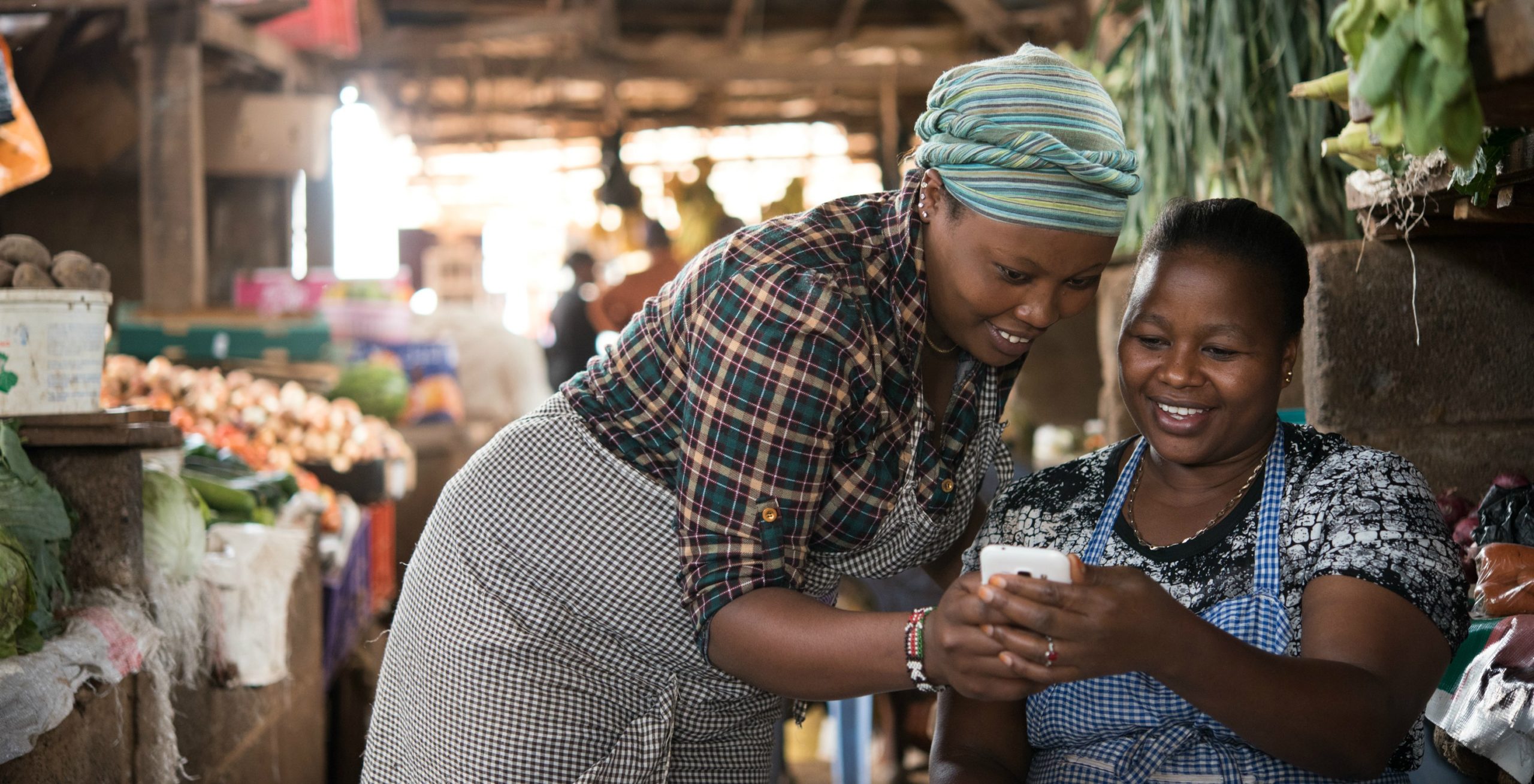Kezia Agbenyega wonders what it will be like to live in a digital, cashless economy. Three days after Ghana recorded its first two cases of the coronavirus on March 12, her bank temporarily shut down their ATMs, directing customers to use “other e-channels” for transactions.
An Accra resident who works from home for World Reader, a global edtech non-profit, Agbenyega wasn’t caught off-guard by the announcement. On a daily basis, she already made more transactions through her mobile money account and her bank card than with cash.
“You can transfer money from your bank to your mobile money account, load cash and make ATM withdrawals with your mobile money account,” she tells me, enthusiastically.
The informal economy in Ghana makes up about 88% of the gross national product. Between 2015 and 2018, the value of mobile money transactions in Ghana grew by 85%. MTN, Airtel Tigo and Vodafone are the key players in the sector.
With mobile money, you can pay for goods on ecommerce platforms like Jumia Ghana, Kikuu, Tonaton, and Zoobashop.
In light of the pandemic, the IMF’s World Economic Outlook for April 2020 advises countries with large informal sectors to further develop their digital payments systems. Those systems “may provide an opportunity to improve the delivery of targeted transfers to the informally employed.”
From Nigeria to South Africa, digital-first companies are normalizing the use of technology in payments and money transfer in the informal economy. Over the past quarter, the pandemic has increased urgency and the level of innovation employed.
Pandemic inspires Yoco’s solutions
Yoco, a South African fintech, provides a portable card reader that merchants connect to a smartphone app to receive payments.
The startup recently reached a customer base of 80,000 small businesses. Having noticed a 90% decrease in in-person transactions since lockdowns began, Yoco launched three online products in April to help merchants overcome the limitations imposed by the coronavirus pandemic.
Originally scheduled to launch in September, the new products were motivated by Yoco’s desire to help merchants find more customers by tapping into the online space. But a precipitous decline in merchants’ revenues due to lockdowns necessitated an immediate rollout.
“The whole idea is to give our customers options to trade at a time when trading is difficult,” Lungisa Matshoba, a Yoco co-founder and chief technology officer, tells me.
One of their new products is called Payment Request. It allows a merchant to send anybody a request and accept online card payments for sales.
With Gift Vouchers, another new product, customers can support small businesses with cash flow needs now, and redeem the vouchers for products or services after the lockdown.
Via the Yoco app, customers can shop with a merchant during the lockdown and pick up their purchases after the lockdown. To win more small business merchants, Yoco slashed the prices of its flagship devices Yoco Go and Yoco Pro by 50%, to R399 and R999 (approx. $21 and $52.5) respectively.
Uptick in Paga’s wallet adoption
In Nigeria, Paga has 25,000 agents providing mobile money and e-payment services across virtually every local government area. In light of the pandemic, the eleven-year old company says it is paying special attention to delivering value to agents and small businesses.
“While we would never have wished for this pandemic, it really highlights the need for us as a nation to really turn the corner on this digital payments front,” Jay Alabraba, Paga’s co-founder and director of business development, tells me.
Paga has had a wallet solution since inception. Uptake, Alabraba says, has improved recently and a scheme is in place to incentivize agents to get customers to register and transact through the wallet.
Mobility restrictions across Nigeria have greatly reduced agent-customer contact. But with increasing adoption of the Paga wallet, customers can complete transactions at home while agents earn income from those transactions.
Another use case increase among Paga wallet owners is in receiving remittances. Though the pandemic-induced depression has reduced the volume of remittances, Alabraba says there has been an increase in the use of the wallets to receive foreign transfers.
Encouraged by recent events, Paga will significantly commit more resources to promote increased adoption of their wallet, Alabraba says.
Familiar challenges persist
Despite the spades of progress, basic factors like a still low literacy rate prevents wide adoption of ecommerce and other digital systems in Africa.
The informal economy is composed of the less educated, less upwardly mobile and most likely to insist on cash transactions.
In East Africa, MPesa’s transaction fees make it an expensive service relative to traditional banking.
After Safaricom and Vodacom bought the rights to the service from Vodafone, they plan to expand it across Africa. To be competitive in markets like Nigeria, they will have to significantly lower their transaction fees to match traditional banks and fintechs like OPay and Paga.
Agbenyega couldn’t pay for a padlock she bought at a small shop because the seller wouldn’t accept payment by mobile money, requiring that she go to a mobile money agent to get cash.
When she uses her Ghanaian GT Bank card at the bank’s ATMs in Nigeria, she is charged utility fees as though it is an international transaction, even though it is the same bank.
Growth is certain
Alabraba cautions on the need to be flexible about current possibilities in the mobile money space. Direct comparisons between geographies, say Africa versus China versus Indonesia, are not straightforward owing to institutional and socio-cultural factors.
The Nigerian government, he says, has to be held to a higher standard as far as promoting the enabling infrastructure for digital payments. In addition to increasing awareness, he wants to see the government actively digitize payments like Conditional Cash Transfers and step down cash disbursements.
However, the growth of digital payments in Africa’s informal economy is a matter of when, not if.
“We are already seeing a ramp up for the basic reason that cash scenarios are not as safe as before. People realise that this over reliance on cash is unnecessary because there are solutions that meet the need,” Alabraba says.
Paga was recently admitted into the Ping An cloud accelerator, a programme by one of China’s largest financial services institutions.
For Paga, a benefit of participating in the accelerator will be to introduce cloud based fintech solutions to its markets. Beyond Nigeria, the company is also present in Ethiopia as Paga Ethiopia after its acquisition of Apposit, a software company.
Digitization is formalization
The benefits of digitizing the majority of a society’s payments range from financial inclusion to anti-money laundering.
Adding a digital solution to boost operations in the informal economy is, of itself, a step to formalization, Matshoba, the Yoco CTO, says.
Creating access to digital financial facilities eases the path for small businesses to obtain the data points needed to include them in formal financial networks. For example, Yoco offers credit to actively trading small businesses based on the data it collects on their cash flow as recorded on the Yoco app.
There is a greater demand for digital services in Africa than at any other time, and there is an argument to be made about the continent’s antifragile ability to quickly recover from current shocks.
The pandemic has adversely affected consumer demand and spending power. It does not make for an ideal test scenario for digital payments. However, it is forcing Africans and African fintechs to think about structuring normalcy in a future world of reduced physical contact.
Will the continent take the great opportunity seriously?





















